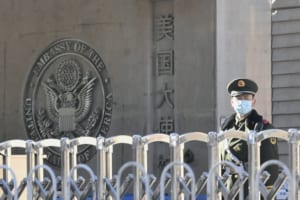We have covered several issues in our series on how to protect your lawful permanent resident status and green card if you have been outside the United States and have been unable to return because of COVID-19.
If you are able to reenter within 1 year of your last date of departure and have an unexpired green card (or a receipt notice extending conditional resident status), or you are able to reenter within 2 years of your last departure and you have an unexpired reentry permit, you will still want to have with you evidence of your permanent residence and ties to the United States. Such evidence can include your job in the U.S, your physical residence, enrolment in school, home, auto or medical insurance that you continue to pay, your immediate family members that are in the U.S., and other significant contacts with the United States. You will also want to bring with you evidence showing why you were prevented from returning to the United States because of COVID-19. Such evidence may include written notification regarding canceled flights, inability to book flights, travel restrictions by the U.S. and/or the foreign country, etc.
Note that just claiming you were unable to return because of COVID-19, by itself, may not be considered a strong reason for not returning to your country of permanent residence – the United States of America.
If you are unable to reenter within 1 year (or 2 years if you have a reentry permit) of your last departure because of COVID-19, you may need to apply for the SB-1 visa at a U.S. Consulate. The Consulate will review your application and your resident intent, and reason you were unable to return to the U.S. and determine if you qualify for the SB-1 visa. You will need to prepare similar documentation as mentioned above.
If you have questions about your status you can contact us today at info@enterlinepartners.com and speak with a U.S. immigration lawyer in Ho Chi Minh City, Manila, or Taipei.
ENTERLINE & PARTNERS CONSULTING
Ho Chi Minh City, Vietnam Office
Suite 601, 6th Floor, Saigon Tower
29 Le Duan Street
Ben Nghe Ward, District 1
Ho Chi Minh City, Vietnam
Tel: +84 933 301 488
Email: info@enterlinepartners.com
Facebook: Enterline & Partners – Dịch vụ Thị thực và Định cư Hoa Kỳ
Website: http://enterlinepartners.com
Manila, Philippines Office
Tel: +632 5310 1491
Email: info@enterlinepartners.com
Facebook: Enterline and Partners Philippines
Website: https://enterlinepartners.com/language/en/welcome/
Copyright 2020. This article is for information purposes only and does not constitute legal advice. This article may be changed with or without notice. The opinions expressed in this article are those of Enterline and Partners only.








